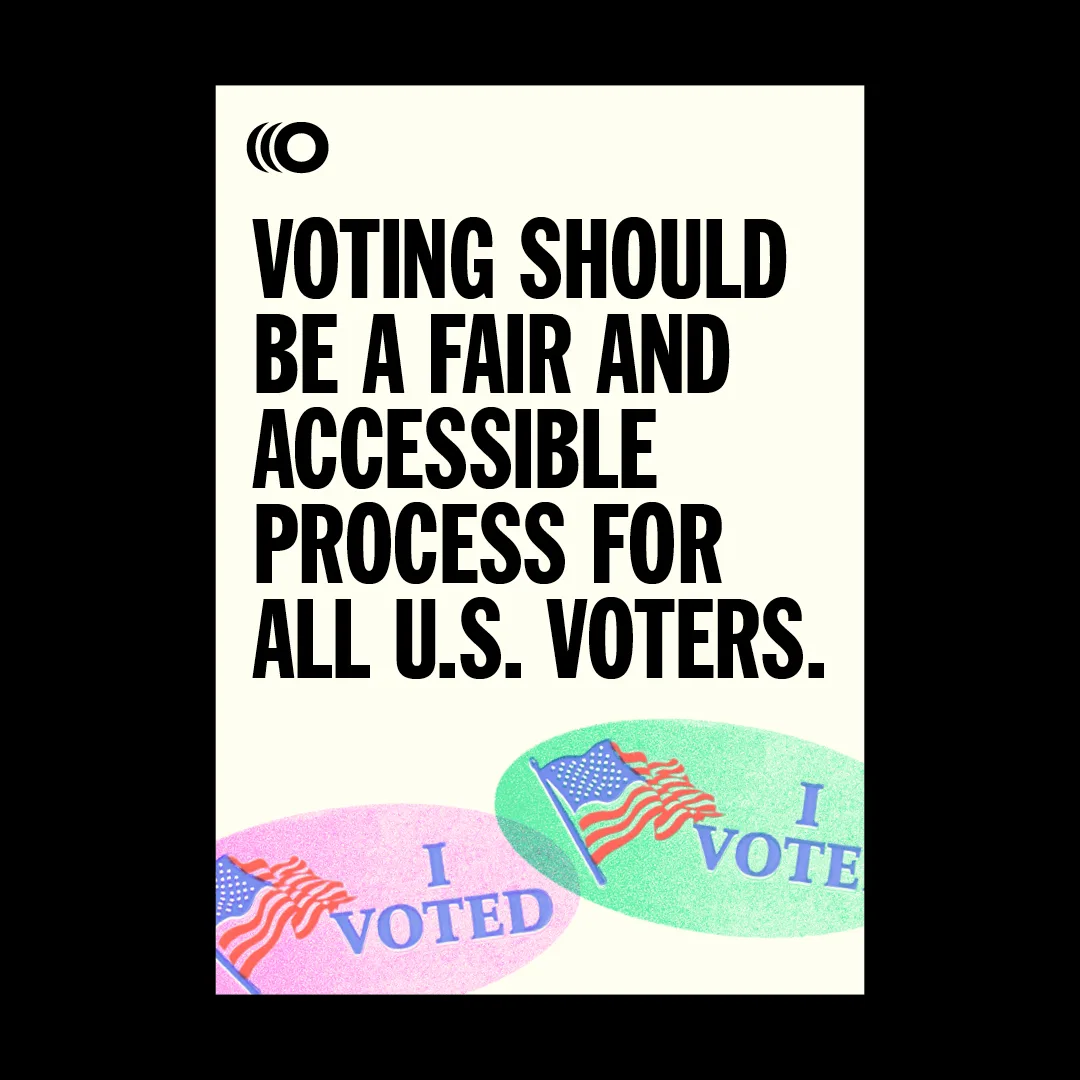The Safeguard American Voter Eligibility (SAVE) Act is a bill introduced to Congress that would greatly change voter registration rules for federal elections. Supporters say it will prevent noncitizens from voting, while critics argue it will make it harder for eligible voters—especially young and first-time voters—to register to vote because of new proof of registration requirements. This bill is part of the ongoing debate over the fine line between election security versus voter suppression.
Here’s what you need to know:
-
WHAT IS THE SAVE ACT?
If passed, the SAVE Act would require people to provide physical proof of citizenship when registering to vote, in the form of a valid U.S. passport, official birth certificate, or naturalization certificate. A Social Security Number or driver’s license number and a self-affirmation of citizenship (the current requirements) would no longer serve as proof of citizenship. These items would have to be presented in person at a local election office.
Proof of citizenship has always been required to vote in federal elections, and by adding this requirement to provide physical documents — which many Americans don’t have access to — this law would prevent eligible people from voting.
- WHO WILL THE SAVE ACT IMPACT?
For all voters, but especially young and first-time voters, the SAVE Act’s requirements would make registering to vote harder. Over 21 million eligible voters do not have easy access to proof of citizenship, and nearly 4 million have no access at all. Even if people do have access to their birth certificate, 73 million U.S. citizens do not have a birth certificate with their current legal name, including married people and others who have legal name changes.
- HOW WILL PEOPLE REGISTER TO VOTE IF THE SAVE ACT BECOMES LAW?
If passed, only state and county election officials could accept a voter’s proof of citizenship, which would have to occur in person at an elections office, effectively eliminating voter registration drives. No longer could everyday Americans or community groups go out into their community to engage with and register voters using existing legal methods. Online voter registration systems, which are used by 42 states, would also be eliminated.
- WHAT IF I’M ALREADY REGISTERED, WILL I BE OK TO VOTE?
Maybe. In addition to the new proof of citizenship requirements, this bill would require all states to use federal databases from the Department of Homeland Security and the Social Security Administration to remove noncitizens from voter lists. These databases tend to be less up to date than state and local agencies. Often citizens who have been recently naturalized might not have their citizenship status reflected in the federal databases. Voter roll purges can be useful for maintaining an accurate voter list, but the requirements in this bill actually mean valid, eligible voters will be removed from the voter roll, and not be able to vote during elections.
This bill requires more frequent voter roll purges, likely leading to an increase in eligible voters being removed from the voter rolls. In Virginia and Alabama in 2024, voter roll purges lead to thousands of eligible voters being denied the right to use their voice and participate in the election. Under the SAVE Act, when someone is removed from the voter rolls there is no requirement to let them know they’ve been removed, meaning voters may not know they are no longer registered until they try to vote and are turned away.
- WILL ELECTION OFFICIALS BE IMPACTED UNDER THE SAVE ACT?
Yes. This bill creates unnecessary requirements for election officials. If passed, election officials who register someone without proof of citizenship could face criminal charges. Private citizens would also be allowed to sue states or election officials if they believe the law isn’t being followed. These new requirements add a mountain of pressure on election workers who would be held to standards that no other government agency or role has.
The bill also does not provide any money to help states update their processes for these new rules. Local election offices would have to execute these changes with the same staff and resources they already have, something that will almost certainly slow down the other operations of their offices, which includes the smooth administration of elections. Many of the changes in the SAVE Act would be instituted almost immediately, with the first batch of new rules going into effect just 10 days after the bill is passed.
- WHAT CAN I DO?
The SAVE Act would bring about the largest election process changes at the federal level in decades, and would establish a major shift in how voter registration works.
The best thing that you can do is prepare now. If you have recently moved or changed your name register to vote as soon as possible. If you are moving in the near future, make sure you have the documents needed to prove your citizenship, so that you can use your voice immediately upon establishing your new residence. In the coming weeks and months, we will be posting on our social media about the impact of the SAVE Act, but if you have any specific questions about the bill, DM or email us, and we’ll do our best to get you an answer.
